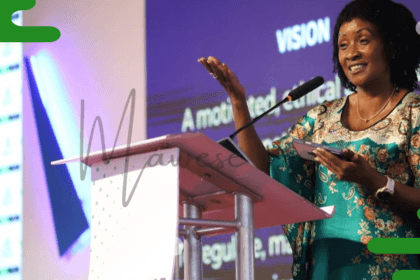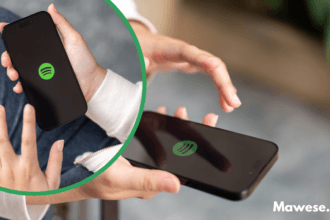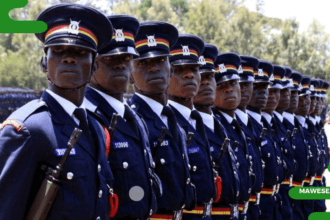Today, I turn 26, though many of you might assume I’m older. I’ve never been one to share every detail of my life online, and curiously enough, I’ve never celebrated with birthday candles since the day I was born. But that’s always been fine with me—what matters most is good health, focusing on what’s important, and keeping God at the center of everything I do.
As I reflect on this milestone (technically a day late, as my birthday was on May 8th), I can’t help but compare my childhood dreams with my current reality. Like many, I once imagined a straightforward path: a good job, financial security, and perhaps a family of my own. Despite some successes, life has taken different turns. Yet even now, I see glimmers of hope on the horizon.
My journey began in Kibomet village in Kitale town, Trans-Nzoia county, where I was born and completed my early education through secondary school. My first significant transition came when I left for college in Meru County—my first extended time away from home.
On this birthday, one question echoes in my mind, something I wish I could whisper to my seventeen-year-old self: What if our deepest wounds become the inkwells where we draft redemption? This piece comes from a young man who had it all, lost it all, but continues rebuilding himself amid chaos at just 26 years old.
Light the candle, little Joe. We’ve stories to tell…
Roots and Responsibility
In African households, being the firstborn child carries unspoken expectations not just from parents but also from siblings and society at large. While many might wish to escape this birthright, I’ve come to embrace mine. As the eldest of four siblings, three brothers, and a sister, I inherited responsibilities that arrived before my baby teeth had even departed.
I became a “junior parent” at an age when most children only worry about play. This meant helping with household chores, watching over my younger siblings, and being held to a higher standard of behaviour. My mother’s voice still echoes in my memories: “Unaona vile Brian kwa boma ya akina…ni mtoto mzuri” (Look at how good Brian is in that family). Though naturally quiet rather than rebellious, I still found myself constantly measured against other children.
For eighteen years, my father was my blueprint for manhood, a businessman whose entrepreneurial spirit shaped my understanding of work ethic and ambition. I admired how he navigated the complexities of running his ventures, balancing risk with calculated decision-making. His business acumen taught me the value of persistence, strategic thinking, and identifying opportunities where others saw obstacles. His confidence in professional settings and commitment to providing for our family established standards I internalised long before I understood their significance. When he’d return home with stories of negotiations and deals, I absorbed these lessons as fundamental truths about success and responsibility.
However, everything changed between late 2021 and early 2022, shortly after I received my admission letter to Meru University. My parents’ marriage fractured, and suddenly, the theoretical responsibilities of being the eldest became painfully practical. The role I had rehearsed since childhood became my reality when I needed guidance.
Through this turbulence, my mother stands as a pillar of strength. Her resilience inspired me to seek ways to ease her financial burdens. It was during this challenging period that I discovered online writing—a passion that became a profession. Over the years, I’ve cultivated my voice through blogging and content writing, eventually contributing to leading publications both in Kenya and globally, particularly in the technology sector.
What I’ve learned about being a firstborn son is profound: this position demands evolution before you feel ready for it. The crown of responsibility represents a vision, not merely a weight, forcing you to develop foresight, anticipate needs before they’re articulated, and understand that sometimes leadership means absorbing shock so others don’t have to. This realisation is why I don’t regret my position, which has sculpted the anxious young boy into the self-determined man I am today.
What I cherish most is witnessing how my siblings observe my every move. My younger brother often mirrors my actions, seeks involvement in my projects, and comes to me for guidance. These seemingly small interactions have fundamentally reshaped my perspective on responsibility. I’ve learned that accountability isn’t just about handling what falls to you but consciously choosing what example you set, knowing younger eyes are always watching, and learning not from your words but your responses when tested.
Much has happened that I choose not to detail here, and this isn’t meant to be a comprehensive memoir. Today, I maintain contact with my father. I harbor no hatred toward him, understanding that everything unfolds for a reason. Yet the lesson remains: disappearing when your children need you most leaves wounds that platitudes cannot heal. In the end, family is about clarity, showing up consistently, and refusing to engage in blame games.
As I symbolically blow out twenty-six candles, I’ve tasted lessons no university curriculum offers: that responsibility’s grip strengthens rather than weakens you, that family fractures can unexpectedly build new bridges, and that crowns, no matter how heavy, polish the brow that bears them. The weight of early responsibility doesn’t diminish your youth—it matures it into something more valuable, resilient, and capable of weathering whatever storms still await.
The Anatomy of Heartbreak
Honestly, beyond the five rites of passage we learned in primary school social studies—birth, adulthood, marriage, eldership, and death—I would add a sixth: heartbreak. This unexpected ceremony takes center stage in our emotional development. I’ve heard countless stories from friends, grown men, and podcast hosts claiming that no boy truly becomes a man without experiencing the fracture of romantic loss. Yet despite these warnings, nothing truly prepares you for heartbreak when it arrives unannounced at your doorstep.
I’ve collected my own anthology of disappointments in matters of the heart. I haven’t been particularly fortunate in love’s lottery, though amidst the chaos, I’ve experienced precious moments of giving and receiving affection that illuminate what’s possible. Sometimes, I wish love came with an instruction manual—a troubleshooting guide for when the connection begins to falter, explaining which wires might be crossed and which emotional circuits have short-circuited.
I hesitate to share too many details here, as I genuinely respect my former girlfriend. She’ll likely read this—she was always my most enthusiastic supporter and remains so even now. This is partly why our separation affected me so profoundly, causing me to lose sight of myself for a time. Looking back, I recognize her as one of the strongest, most resilient women I’ve known. Now, I find myself surrounded by memories of us, struggling to articulate the complexity of what remains.
Perhaps my homeboy Allano could tell this story better than I can. He witnessed the aftermath firsthand, offering both emotional support and practical help, like finishing meals when my appetite disappeared along with my relationship😁. His friendship, along with others, has become instrumental in my healing journey, even as I continue to miss her deeply. I remind myself daily that everything unfolds for reasons we may not immediately understand.
I won’t delve into the specifics of what transpired between us or engage in assigning blame. Heartbreaks are simply part of life’s curriculum. I made mistakes. She made mistakes. But ultimately, we cultivated something beautiful between us, even if it couldn’t endure.
To her, wherever you are, I owe unexpected lessons. Thank you for showing me love’s capacity to both break and rebuild. Thank you for the clarity that comes from loss. If our paths never cross again, know this: I’ll always root for your happiness, just as I’m learning to root for my own.
Heartbreak doesn’t appear on any formal curriculum, yet it teaches us more about ourselves than many designated courses of study. The scar tissue it leaves behind becomes both armor and map—protecting vulnerable places while marking the territories where we’ve learned to navigate with greater wisdom. At twenty-six, I understand these wounds aren’t just injuries but investments in a more compassionate, self-aware future.
I Refuse to Quit: A Birthday Present
At twenty-six, the most meaningful gift I can give myself isn’t flowers, well-wishes, or cake—it’s the bravest truth I must acknowledge: mere survival is insufficient. My scars have evolved into a covenant, a sacred promise to myself that I will thrive, not just endure.
I haven’t mentioned this previously, but I can’t overlook the numerous hospital visits that have punctuated my young life—the IV drips, head CT scans, and medical uncertainties. At only twenty-six, I’ve already navigated more medical corridors than some people twice my age. I find myself whispering to the universe: Please show mercy from twenty-six onward. While various doctors proposed different diagnoses—sepsis, dehydration, BPPV—all blood tests ultimately revealed nothing conclusive. One physician suggested stress as the culprit, and intuitively, I recognized the truth in this assessment.
I’ve dedicated myself relentlessly to mastering my craft. Though I never initially aspired to become a writer or blogger, my passion led me unexpectedly into this profession. Now, at this significant juncture, I’ve made a pivotal decision. This isn’t about quitting but rather about realigning with my deepest interests. I’m choosing to focus more intensively on coding and software development—essentially marrying myself to machine learning and artificial intelligence, fields that have always been called to me.
Perhaps the most profound gift I can offer myself at twenty-six is reconciliation with God. Raised in a loving Christian family, I’ve gradually recognized my spiritual drift over recent years. This distance no longer feels acceptable to me. As I begin this twenty-sixth year, I’m drawn to the promise in Malachi 3:7: “Return to me, and I will return to you.” This reciprocal invitation feels particularly meaningful now.
As I conclude, I have messages for those who matter most:
- To My Siblings: I love you immeasurably. Forgive my absences, as I’ve missed witnessing parts of your growth. As we continue sharing a home, remember we don’t just share blood—we share a name that we’re responsible for preserving with dignity for generations to come.
- To Dad: When you called me “Mzee” last week, I recognized the progress we’re making. Though I’ve grown into a young adult, I still need your guidance to navigate life’s complexities. For the first time, I feel like your son rather than a project or a stranger. Thank you for finding your way back.
- To Mum: Words feel insufficient to express my gratitude. You’ve been my unwavering strength through everything. Please know that no matter what challenges arise, I’ve got you—always.
- To Her: I’ve finally stopped drafting messages I’ll never send. Wherever life has taken you, I genuinely hope you’ve found peace. Thank you for teaching me that endings can birth better beginnings and that loss can ultimately guide us toward what we truly need.
- To God: Let’s communicate more consistently—not just crisis prayers when troubles arise, but expressions of gratitude for the mercies You’ve shown in repeatedly granting me fresh starts when I’ve needed them most.
- To You Reading This: Whatever insights you gather from this brief chronicle of my life is yours to interpret. What I can offer is this: your breakdowns contain the blueprints for your success. Whether you choose to study these plans or set them aside remains entirely your decision.
“For the meaning of life differs from man to man, from day to day and from hour to hour. What matters, therefore, is not the meaning of life in general but rather the specific meaning of a person’s life at a given moment.” — Viktor Frankl, Holocaust survivor and author of “Man’s Search for Meaning.”
The story continues, and at twenty-six, I’m only beginning to understand the privilege of discovering my meaning in each passing moment.










